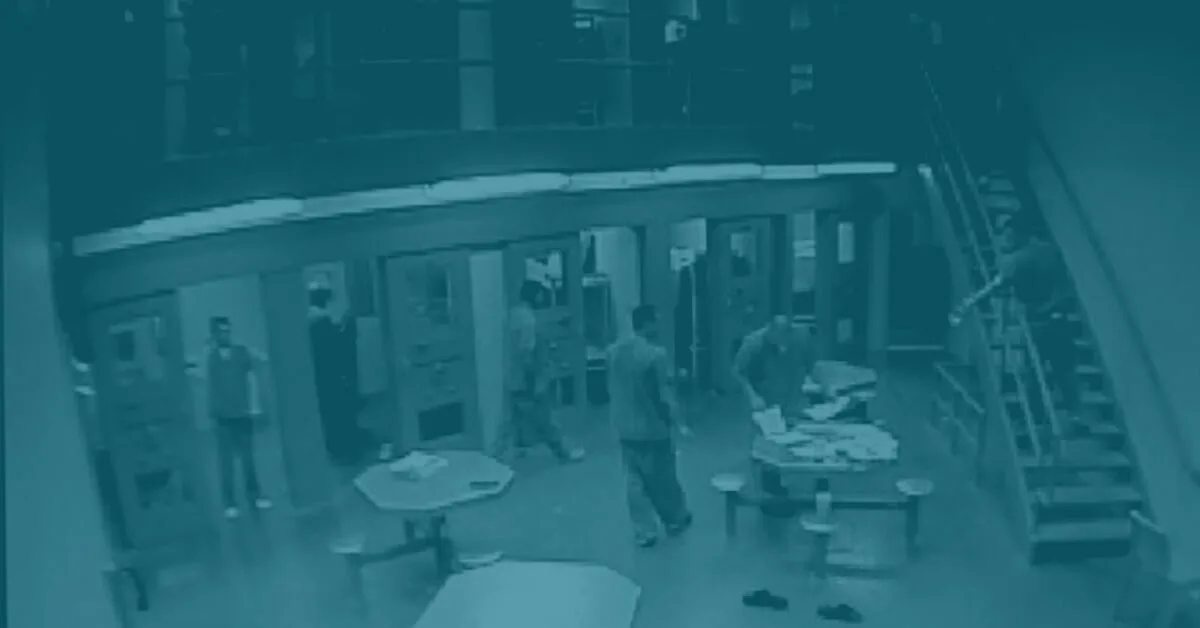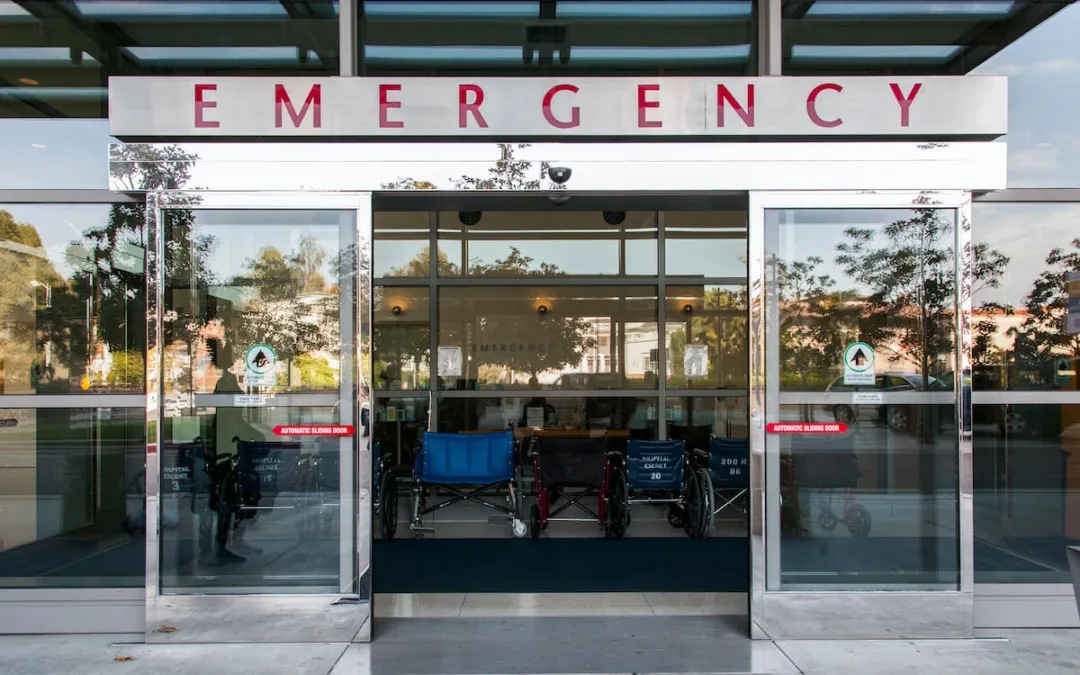
#image_title
#image_title
Low-risk inmates may see an earlier release to space out those who remain
A failure to provide inmates in Wisconsin with more space sooner could prompt a significant outbreak of COVID-19 in the state’s prisons and county jails, worsen the spread of the virus and lead to illness and deaths among that population, criminal justice advocates and public health officials say.
Wisconsin’s 23,600 inmates in the state’s prisons and the 12,000 in county jails are at high risk of contracting the virus, advocates said, because of their close confines. The most successful strategy public health officials advocate for to prevent the spread of the virus is “social distancing,” or staying at least 6 feet from others.
But that simply isn’t possible in prisons and jails, especially given the oftentimes crowded conditions in those facilities in Wisconsin, said Emilio De Torre, director of community engagement for ACLU-Wisconsin. Many prisons and county jails in the state are at or above recommended capacity.
“In too many cases in Wisconsin, our inmates simply don’t have the physical space to protect themselves from this virus,” De Torre said. “This is going to blow up in a rash of cases if we don’t do something soon.”
In addition to inmates, the approximately 7,000 people who staff those facilities also are at high risk of contracting COVID-19, said Dr. Geoffrey Swain, the founding director of the Wisconsin Center for Health Equity who previously was medical director for the city of Milwaukee Health Department for 26 years.
Failure to address the situation by providing inmates with additional space “means it is much more likely that the guards and other staff working in jails and prisons will be infected with this virus too,” Swain said. “In some instances this is a life-and-death situation.”
Such infections are already occurring. Two Dane County sheriff’s deputies assigned to the Dane County Jail tested positive for COVID-19 during the weekend. That information follows reports that at least three DOC employees have become infected by the virus, and two Dane County inmates have tested positive for it. In Illinois, the Cook County sheriff’s office announced on Monday that 134 Cook County Jail inmates there have tested positive for the virus, along with 20 staff members.
A host of criminal justice advocacy and public health organizations are calling on Gov. Tony Evers to enact stronger measures to protect inmates and staff at Wisconsin prisons and jails. Groups such as the ACLU-Wisconsin, the Incarcerated Workers Organizing Committee, WISDOM, the Wisconsin Center for Health Equity and the Wisconsin Public Health Association have sent letters to the governor urging that he safely reduce prison and jail populations to slow the spread of COVID-19.
Among the actions they want Evers to take are releasing inmates over age 65 and those most at risk of COVID-19 because of underlying health conditions. Those groups also want the state Department of Corrections to release inmates scheduled for parole within the next six months and end the detention of people for technical parole violations.
Evers and the DOC have taken measures to address the situation. Earlier this month the DOC suspended all in-person visits, with the exception of those by attorneys and other professionals, in the more than 30 prisons across the state it operates. Transfers of new inmates to state prisons also have been halted.
But De Torre and others said that isn’t enough to adequately protect inmates. The governor must enact orders that free up space in the state’s prisons and jails if the state is to avoid further COVID-19 cases at those sites, De Torre said.
“Governor Evers is moving too slowly,” De Torre said. “He needs to do more.”
Evers’ office did not respond to a message seeking comment Tuesday.
Responses vary
Some of the state’s 72 county jails are complying with recommendations to decrease the number of inmates, criminal justice advocates said. For example, jails in such locations as Barron, Chippewa and Ozaukee counties are allowing work-release prisoners to be monitored at home, thereby freeing up space for inmates still incarcerated.
However, other counties have not taken a similar approach, De Torre said, and are increasing the chances that inmates and staff could contract COVID-19. Social justice advocates in Eau Claire County said they repeatedly have asked staff to provide details about how they are protecting those in jail but have not received answers.
Eau Claire County Jail captain Dan Bresina previously said work-release inmates there are not being released, but jail staff are taking precautions to separate inmates in an attempt to prevent the spread of COVID-19. Currently the jail is at 188 inmates, near the 80 percent capacity that is deemed safe.
Since then, to reduce the jail population, some people charged with infractions in Eau Claire receive court dates and are sent home rather than going to jail, sources familiar with the situation said. In addition, some work-release inmates are now being monitored from home.
David Carlson, a regional organizer for ACLU’s Rights for All campaign, said he and others in Eau Claire have sought answers for the past three weeks about what is happening regarding inmate and staff protections in Eau Claire related to COVID-19. But they have received few specific answers, he said, noting concerns about not allowing work-release inmates to be monitored from home.
“There has been zero transaparency,” Carlson said. “And without transparency, there is no way to know whether protective measures are taking place.”
That lack of information worries people like Susan Wolfgram, who has operated Stop & Think, a cognitive-behavioral program for incarcerated men at the jail for the past decade and who is a criminal justice reform advocate for JONAH, an affiliate of WISDOM.
“When it comes to vulnerable groups of people, you can’t just believe what the officials say. You have to independently verify it,” she said, noting “jails are incubators of disease spread.”
Carlson, Wolfgram and others said they want the Eau Claire City-County Health Department to oversee the COVID-19 response at the jail. They also want continued updates on the status of the jail related to COVID-19. Carlson is scheduled to meet with health department officials on Wednesday.
“We just want to make sure that action is being taken to protect people in the jail,” Carlson said.
That is the same thing the ACLU and other criminal justice advocates want, De Torre said. Removing as many inmates from prisons and jails as possible while preserving public safety is a major means of preventing a COVID-19 outbreak in those sites, he said.
“If you really want to slow the spread (of the virus), you make sure people have enough space to protect themselves and others,” he said.
Politics

Biden administration bans noncompete clauses for workers
The Federal Trade Commission (FTC) voted on Tuesday to ban noncompete agreements—those pesky clauses that employers often force their workers to...

Opinion: Trump, GOP fail January 6 truth test
In this op-ed, Milwaukee resident Terry Hansen reflects on the events that took place on January 6, the response from Trump and other GOP members,...
Local News

Readers Poll: Top Bowling Alleys in Wisconsin
Looking for the best bowling in Wisconsin? Look no further! Our readers have spoken in our recent poll, and we have the inside scoop on the top...

8 Wisconsin restaurants Top Chef judges are raving about
Top Chef’s 21st season is all about Wisconsin, and on-screen, it’s already apparent that the judges feel right at home here. But, while filming in...




